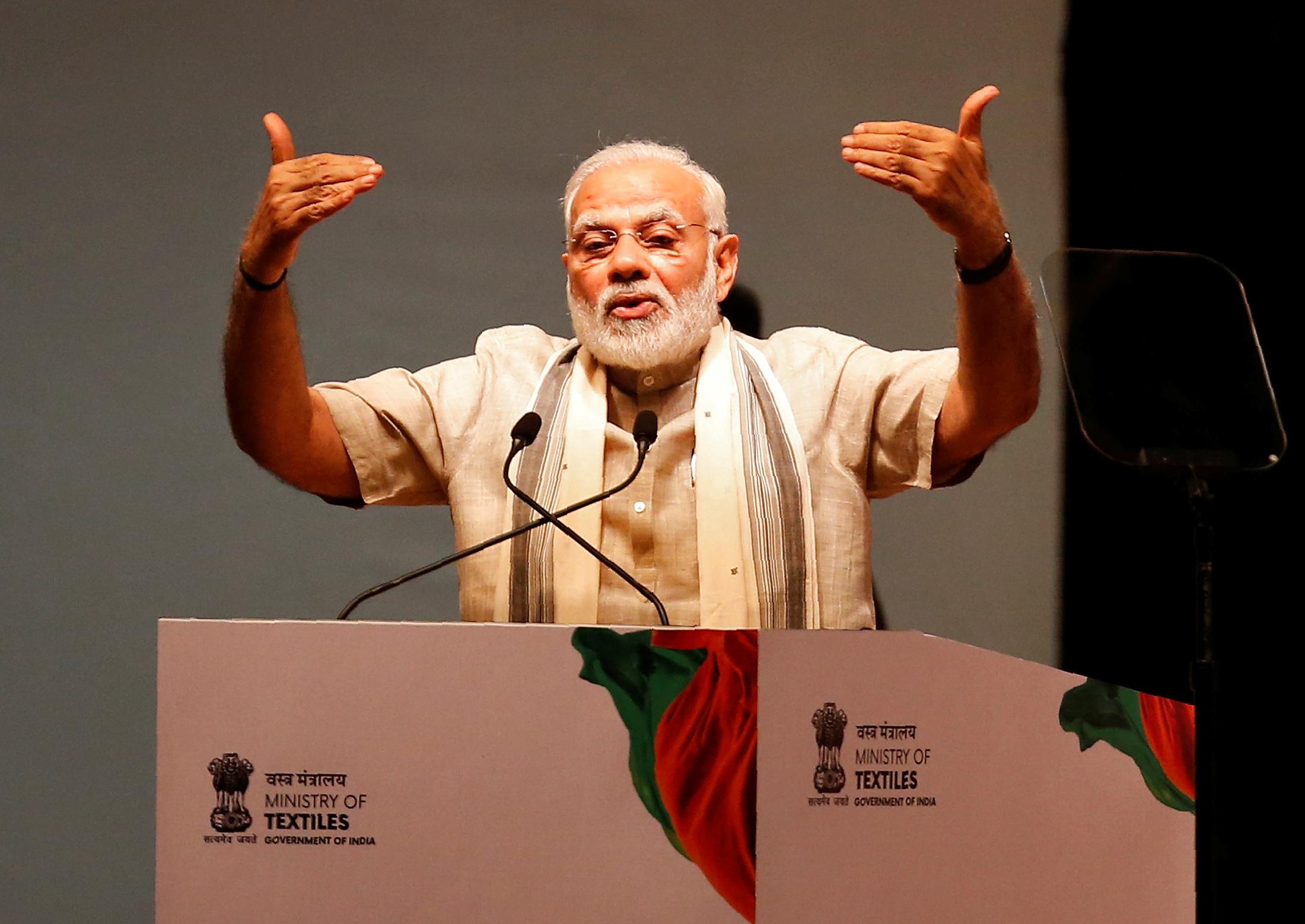Modi set to become first Indian prime minister to visit Israel - but he won’t meet Palestinian leaders
First state visit since India restored ties with Israel 25 years ago signals closer defence and financial relationship

Your support helps us to tell the story
From reproductive rights to climate change to Big Tech, The Independent is on the ground when the story is developing. Whether it's investigating the financials of Elon Musk's pro-Trump PAC or producing our latest documentary, 'The A Word', which shines a light on the American women fighting for reproductive rights, we know how important it is to parse out the facts from the messaging.
At such a critical moment in US history, we need reporters on the ground. Your donation allows us to keep sending journalists to speak to both sides of the story.
The Independent is trusted by Americans across the entire political spectrum. And unlike many other quality news outlets, we choose not to lock Americans out of our reporting and analysis with paywalls. We believe quality journalism should be available to everyone, paid for by those who can afford it.
Your support makes all the difference.Narendra Modi is arriving in Tel Aviv for the first ever visit of a sitting Indian prime minister to Israel in a sign that the once aloof ties between the two countries are thawing.
India, which is home to a religious minority of 172 million Muslims, has always been a vocal supporter of the Palestinian cause.
At the same time, however, the state has quietly built up counter-terror and trade relations with Israel since diplomatic ties were restored 25 years ago and India’s politics has leaned to the right.
Starting from Tuesday Mr Modi and Israeli Prime Minister Benjamin Netanyahu will sit down for three days of talks to seal military and cyber security deals worth billions, including drones, missiles and radar systems and the creation of a new jointly-built missile-defence system - India’s second.
India is already Israel's biggest arms market, worth $1bn (£770,000) a year, as the country races to keep up militarily with China and Pakistan.
It is usual for visiting world leaders to also travel to Ramallah in the West Bank to meet with the Palestinian Authority to maintain a balance of ties - a trip Mr Modi is not making.
The snub has not gone unnoticed at home, where the prime minister has drawn sharp criticism for his decision to skip meeting with Palestinian President Mahmoud Abbas.
Many Indian Muslims have already accused Mr Modi’s Hindu-nationalist Bharatiya Janata Party (BJP) of sidelining the concerns and needs of Muslim citizens since he took office in 2014.
“Narendra Modi's visit to Israel will only strengthen its occupation of Palestine,” Asaduddin Owaisi, a member of India's federal parliament from a regional group that promotes Muslim rights, told Reuters.
“We have a wide ranging partnership with Israel that ranges from agriculture cooperation to homeland security,” Bala Bhaskar, head of the Indian foreign ministry's West Asia division, told media, adding that India's ties with Israel and the Palestinians were important in their own right and “neither should viewed through the prism of the other.”
Nonetheless, Mr Modi is being given the red carpet treatment during his trip to Israel. Mr Netanyahu will accompany him for almost all the entire duration of his visit - an honour usually reserved for visiting US presidents.
Speaking earlier this week the Israeli prime minister said Mr Modi’s trip is “historic” and would “deepen co-operation in a wide range of fields - security, agriculture, water, energy - basically in almost every field Israel is involved in."
Join our commenting forum
Join thought-provoking conversations, follow other Independent readers and see their replies
Comments